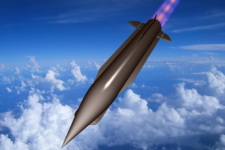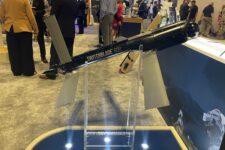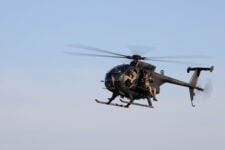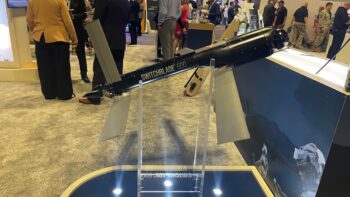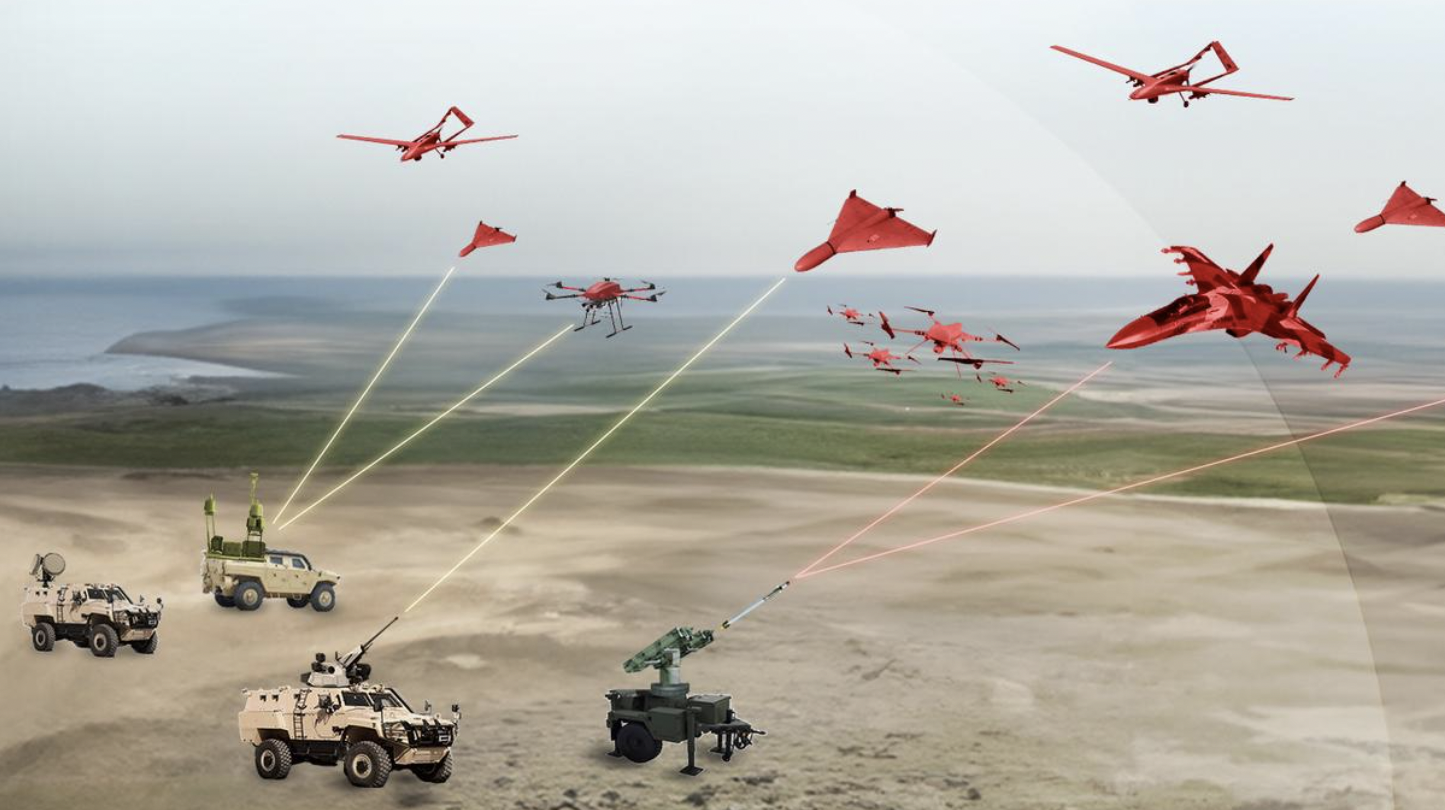
An Elbit graphic showing off the concept of its Red Sky air defense system. (Elbit)
JERUSALEM — Elbit Systems’ broke cover last week on its new Red Sky air defense system, announcing the short-range asset has landed its first international customer.
The company on April 30 announced a $50 million contract for its Red Sky short range air defense system, the company said on April 30. The company did not specify the customer or even the region it was acquired in, as is often typical of Israeli industry, but did say the contract covers a two-year period.
Yehuda “Udi” Vered, General Manager of Elbit Systems Land, told Breaking Defense that this was the “first international customer for this system, with all the three layers.” The name Red Sky previously referred to an older air defense system made by IMI, which Vered says was a “completely different” system. IMI was acquired by Elbit in 2018 and the current Red Sky was developed over the last three years.
Elbit describes Red Sky as “a Tactical Very Short-range Air Defense (VSHORAD) System designed to provide protection against low-altitude aerial threats.” It includes the company’s Redrone electronic warfare solution, which is designed to counter unmanned systems and includes a “DAiR Radar, Signal Intelligence (SIGINT) sensors, RF Jammer, and COAPS-L electro-optical (EO) payload,” per the firm.
In addition to that soft-kill option, Red Sky is designed to provide a hard-kill capability. Vered told Breaking Defense that the system includes a radar, as well as links to a 30mm gun and missile system for downing threats within ranges of seven kilometers and 15,000 feet. The only part of the system not supplied by Elbit is the missiles, which will be integrated with whatever the customer nation wants to use. Vered emphasized the ability for the system to be flexible, which should allow it to meet emerging threats in the future.
A graphic put out by Elbit showed the system deployed with vehicles, in which one vehicle is mounted with a gun and another has a radar. The system itself is deployed with a missile. The graphic shows Red Sky combating helicopters, warplanes, drones and loitering munitions.
“I would say the main achievement as I see it is the full system with the kinetic interception ammunition, missile, radar and soft kill. And also Elbit’s Command and control system,” Vered said. He described the system as mobile and easy to deploy, and emphasized the modular nature.
“You can decide the threat is only drones and UAVs, or small and medium UAVs, maybe the gun is [not] enough or the missiles, and maybe in the future add the guns,” the executive said. “Each one comes on a different vehicle, a relatively not heavy vehicle. It’s an elegant solution.”
The war in Ukraine has demonstrated this kind of system can be very efficient against Iranian UAVs, Vered noted.
Elbit is one of the big three Israeli defense firms, but has not built the same name in air defense for itself that competitor Rafael has. Red Sky fills a defense niche that is different to Rafael’s well-known Iron Dome system, but only time will tell if Red Sky can achieve the same level of commercial success.
TAI exec claims 20 Turkish KAAN fighters to be delivered in 2028
Temel Kotil, TAI’s general manager, claimed that the domestically-produced Turkish jet will outperform the F-35 Joint Strike Fighter.


